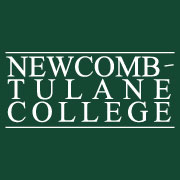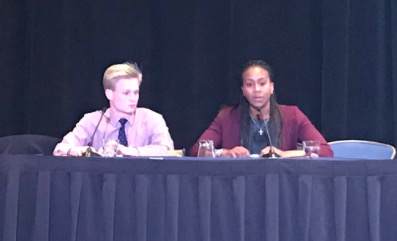With funding from NTC, I was able to travel to the Association of Research Otolaryngology’s annual meeting in Baltimore, MD. At the conference, I joined a panel called ‘Sporting in Silence’ to discuss the means by which student-athletes with disabilities can acquire the accommodations they need to succeed as they transition into higher education.
ARO is a massive basic science conference for auditory neuroscientists and clinicians alike. But each year, ARO presents an event wherein they track the auditory sciences into the lives of patients and the community. This year, I was invited to join a clinician and WNBA legend, Tamika Catchings, to speak about the challenges and resources that exist for young people who are navigating hearing loss, athletics, and academics. The event began with a speech from Catchings. She is inspiring, and her story is an important one. After the speech, the panel fielded questions from an audience comprised of scientists, clinicians, and quite a few young athletes who jumped at the chance to meet and hear Tamika.
I was invited to be a part of this event because of writing that I have done about student-athletes with disabilities making the transition into higher education. I have written a resource text and an article, and I have collected and presented data about the state of transition plans between high school and college for this population. Those projects have made it clear that clinicians, educators, parents, students, coaches – all stakeholders in the lives of young athletes – do not currently have the knowledge and tools they need to help people access athletics and academics without restriction. Too many activities are still prohibitive, when multiple federal laws and statutes guarantee equal access for everyone, regardless of a disability. I am grateful to Tulane for continuing to fund the work that I have done in this area. Tulane’s funding has put critical information in front of people who are capable of changing policy, as well as the lives of young student-athletes.
Written by Grant Rauterkus, Dean’s Grant recipient, 2018-2019

